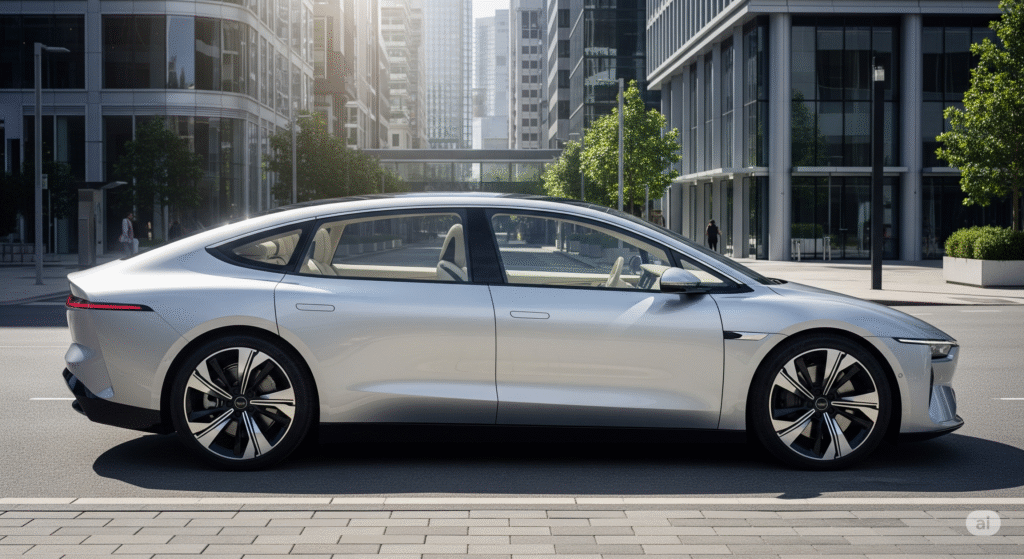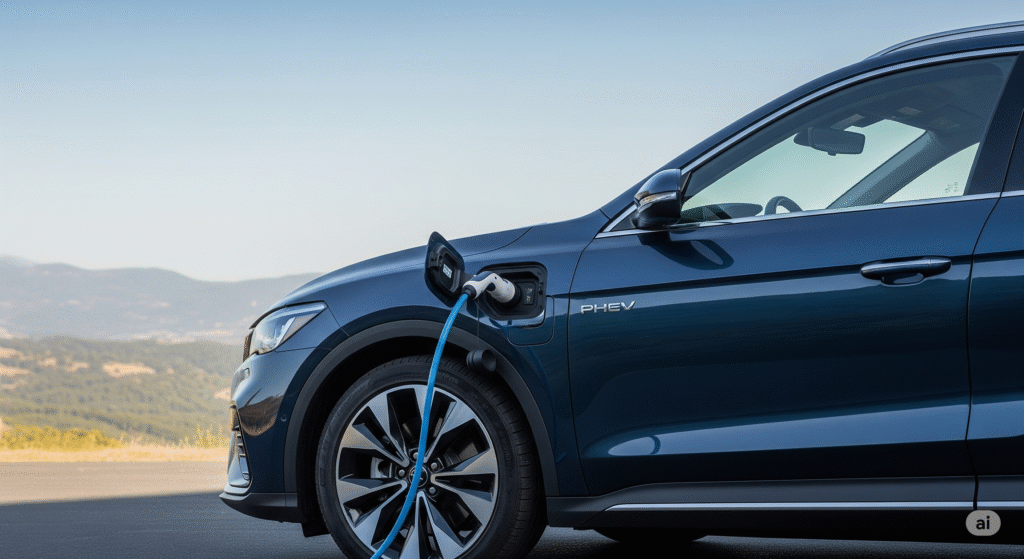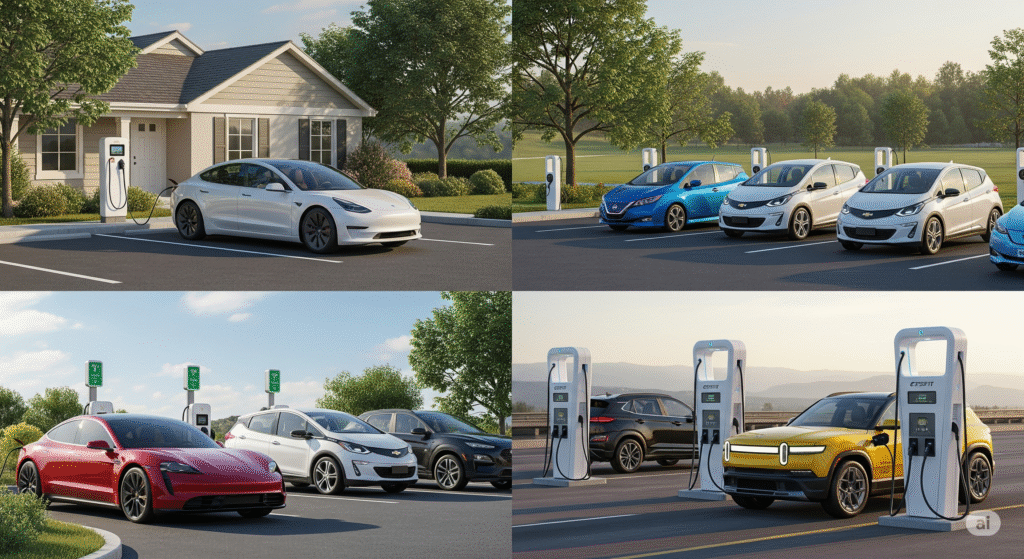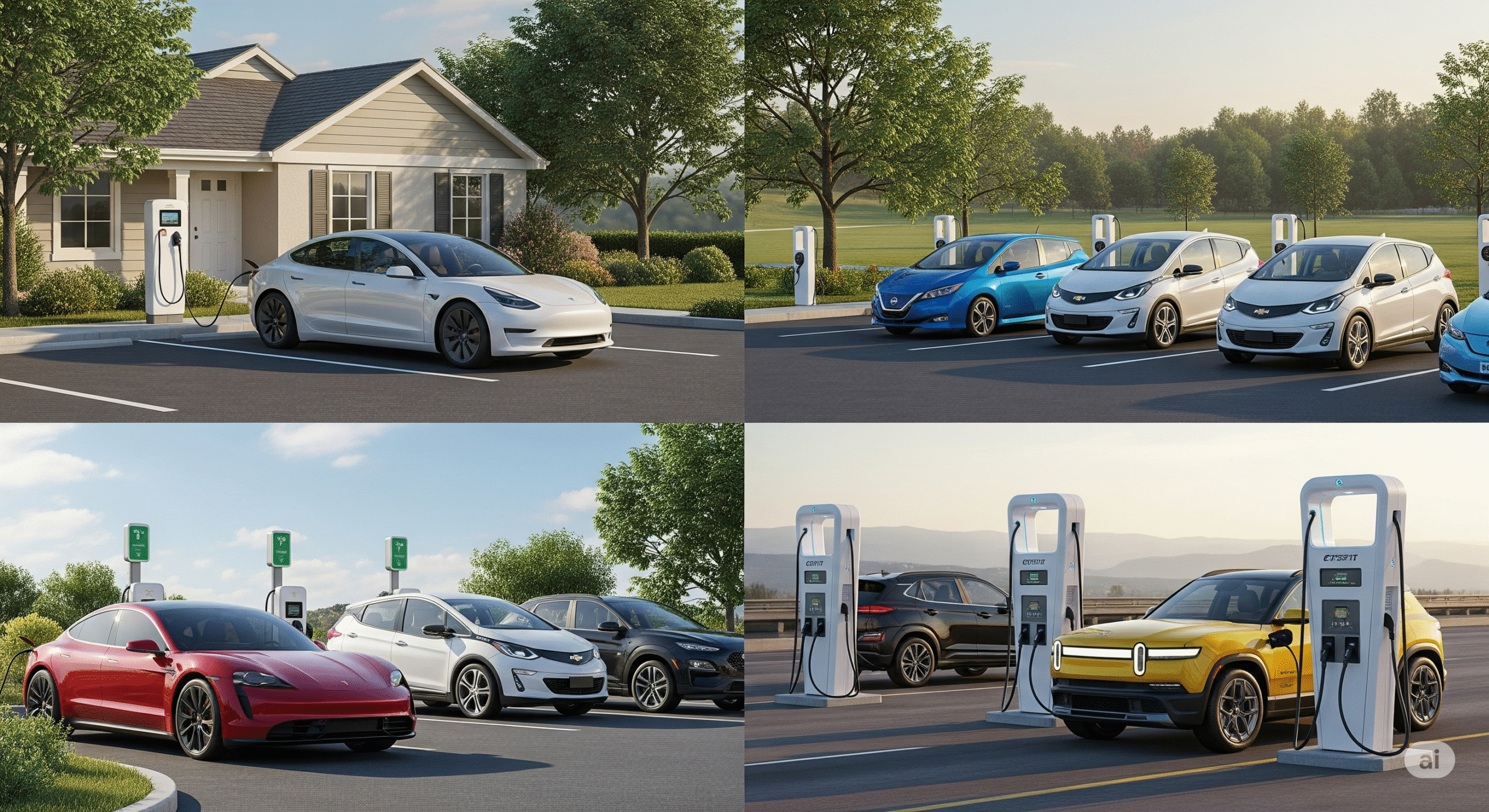Electric vehicles (EVs) are rapidly transforming the automotive landscape. With growing concerns about climate change and advancements in battery technology, EVs are becoming increasingly popular among consumers and policymakers alike. This comprehensive guide delves into the world of electric vehicles, exploring their benefits, types, and the future they promise. Whether you’re an eco-conscious driver or simply curious about the latest automotive innovations, this blog post will provide you with a complete overview of electric vehicles.
Why Choose Electric Vehicles?
Environmental Benefits
One of the most compelling reasons to switch to an EV is its positive impact on the environment. Traditional gasoline-powered cars emit harmful greenhouse gases, contributing to air pollution and climate change. Electric vehicles, on the other hand, produce zero tailpipe emissions, significantly reducing your carbon footprint.
Even when considering the electricity used to charge EVs, studies show that they still result in lower overall emissions compared to gasoline cars, especially in regions with cleaner energy grids. By driving an EV, you’re actively contributing to cleaner air and a healthier planet.
Cost Savings
While the initial purchase price of an EV might be higher than a comparable gasoline car, the long-term cost savings can be substantial. EVs have fewer moving parts, requiring less maintenance and fewer trips to the mechanic. You’ll also save money on fuel, as electricity is typically cheaper than gasoline. Depending on your driving habits and electricity rates, you could save hundreds or even thousands of dollars per year.
Furthermore, many governments offer incentives and tax credits for EV purchases, further reducing the upfront cost. Be sure to check your local and federal regulations for available rebates and incentives.
Performance and Technology
Electric vehicles offer a unique driving experience characterized by instant torque and smooth acceleration. Unlike gasoline cars, EVs deliver maximum torque from a standstill, resulting in quick and responsive performance. The quiet operation of electric motors also provides a more serene and comfortable ride.
EVs are also packed with cutting-edge technology, including advanced driver-assistance systems (ADAS), over-the-air software updates, and seamless integration with smartphone apps. These features enhance safety, convenience, and the overall driving experience.
Types of Electric Vehicles
Battery Electric Vehicles (BEVs)
BEVs, also known as all-electric vehicles, run solely on electricity stored in a battery pack. They have no gasoline engine and produce zero tailpipe emissions. BEVs are charged by plugging into an external power source, such as a home charging station or a public charging station. The range of BEVs varies depending on the battery size and driving conditions, but many models now offer over 200 miles on a single charge.

Examples: Tesla Model 3, Nissan LEAF, Chevrolet Bolt EV
Plug-in Hybrid Electric Vehicles (PHEVs)
PHEVs combine an electric motor with a gasoline engine, offering a blend of electric and gasoline power. PHEVs can be driven on electric power alone for a certain range, typically 20-50 miles, before the gasoline engine kicks in. They can be charged by plugging into an external power source, but can also run on gasoline like a traditional car. PHEVs offer a good compromise for drivers who want the benefits of electric driving but still need the range and flexibility of a gasoline car.

Examples: Toyota Prius Prime, Chevrolet Volt (discontinued), Ford Escape PHEV
Charging Your Electric Vehicle
Charging is a crucial aspect of owning an EV. There are several ways to charge your electric vehicle, each with varying charging speeds and convenience levels.

- Level 1 Charging: Using a standard 120V household outlet. This is the slowest charging method, adding only a few miles of range per hour.
- Level 2 Charging: Using a 240V charging station, typically installed at home or found at public charging stations. This method provides a significantly faster charging rate, adding 20-30 miles of range per hour.
- DC Fast Charging: Using high-powered charging stations, often found along highways and at dedicated charging locations. This is the fastest charging method, adding up to 100 miles of range in about 30 minutes.
Public charging networks are expanding rapidly, making it easier than ever to find charging stations on the go. Popular charging networks include Tesla Supercharger, Electrify America, and ChargePoint. Many EV owners also install Level 2 charging stations at home for convenient overnight charging.
The Future of Electric Vehicles
The electric vehicle market is poised for continued growth and innovation in the coming years. Advancements in battery technology are leading to longer ranges, faster charging times, and lower battery costs. Automakers are investing heavily in electric vehicle development, and new models are constantly being introduced.
Autonomous driving technology is also expected to play a significant role in the future of electric vehicles. Self-driving EVs could revolutionize transportation, making it safer, more efficient, and more accessible. The convergence of electric vehicles and autonomous driving has the potential to transform our cities and our lives.
Furthermore, governments around the world are implementing policies to promote the adoption of electric vehicles, including stricter emissions standards, tax incentives, and investments in charging infrastructure. These policies are creating a favorable environment for the growth of the EV market.
Conclusion: Embrace the Electric Revolution
Electric vehicles are more than just a passing trend; they represent a fundamental shift in the way we think about transportation. With their environmental benefits, cost savings, and cutting-edge technology, EVs offer a compelling alternative to gasoline cars. As the electric vehicle market continues to evolve, we can expect even greater innovation and affordability in the years to come.
Ready to make the switch to electric? Explore our selection of electric vehicles today and discover the future of driving.

Sounds Interesting. Can you share some EVs in India to buy?
Very interesting and suggest some Ev cars to buy
It’s look too interesting
Can you be more specific about the content of your article? After reading it, I still have some doubts. Hope you can help me.
Your article helped me a lot, is there any more related content? Thanks! https://www.binance.com/en/register?ref=JHQQKNKN
Your point of view caught my eye and was very interesting. Thanks. I have a question for you.
Thank you for your sharing. I am worried that I lack creative ideas. It is your article that makes me full of hope. Thank you. But, I have a question, can you help me?
Thank you for your sharing. I am worried that I lack creative ideas. It is your article that makes me full of hope. Thank you. But, I have a question, can you help me? https://accounts.binance.com/id/register-person?ref=UM6SMJM3
Thanks for sharing. I read many of your blog posts, cool, your blog is very good. https://accounts.binance.com/sl/register-person?ref=I3OM7SCZ
Can you be more specific about the content of your article? After reading it, I still have some doubts. Hope you can help me. https://www.binance.com/en/register?ref=JHQQKNKN
I don’t think the title of your article matches the content lol. Just kidding, mainly because I had some doubts after reading the article.
Your point of view caught my eye and was very interesting. Thanks. I have a question for you.
I don’t think the title of your article matches the content lol. Just kidding, mainly because I had some doubts after reading the article.
Your article helped me a lot, is there any more related content? Thanks!
Your article helped me a lot, is there any more related content? Thanks!
Thanks for sharing. I read many of your blog posts, cool, your blog is very good.